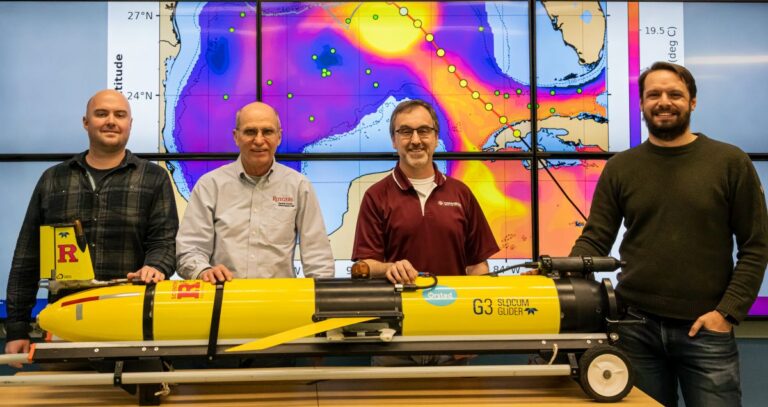The Gulf Research Program (GRP) of the National Academies of Sciences, Engineering, and Medicine has announced $5.4 million in research funding awarded to Texas A&M University from the Understanding Gulf Ocean Systems (UGOS) program. Dr. Scott Glenn will lead the Rutgers effort including underwater glider deployments in the Gulf of Mexico and processing of all surface current radar data.
The funding will establish the Gulf Consortium for Offshore Risk Reduction Engaging Stakeholders (GulfCORES), which will be led by Dr. Steven DiMarco, professor in the Department of Oceanography at Texas A&M and team leader for ocean observing at Texas A&M’s Geochemical and Environmental Research Group (GERG).
GulfCORES will complement and enhance existing modeling and observational capabilities by providing adaptive sampling observations from glider, float, and drifter platforms, DiMarco said. The consortium will also actively engage stakeholders and industry to ensure sustainable transitions to operations that support end-users. DiMarco said that GulfCORES will execute an observational program to support numerical modeling, and develop a plan to incorporate study outputs into existing operational agency and industry activities.
“Our team is excited about the opportunity to work with the National Academies GRP and the other consortia on this project,” he said. “Because of the decades-long experiences in providing observations that are critical to accurate and reliable forecasts, we have a dream team positioned to improve the well-being of the Gulf of Mexico community. When coupled with Texas A&M’s unique relationship with offshore industries, I am confident that our work will lead to a safer and more sustainable Gulf.”
The Texas A&M-led project is one of three awarded as part of UGOS’ third phase (UGOS-3), and the three consortia will work collaboratively to apply existing and emerging data to improve operational forecasting of the Gulf of Mexico ocean dynamics, including the Loop Current and its eddies.
“One of the Gulf Research Program’s core priorities is to make data-rich scientific information available to decision-makers in the Gulf,” said Donald F. Boesch, National Academies senior scholar. “I am confident that our UGOS program will result in major advances in the practical use of scientific understanding of the highly dynamic Gulf of Mexico and how it is changing in our warming world.”
Full article at the Rutgers University Newsroom

